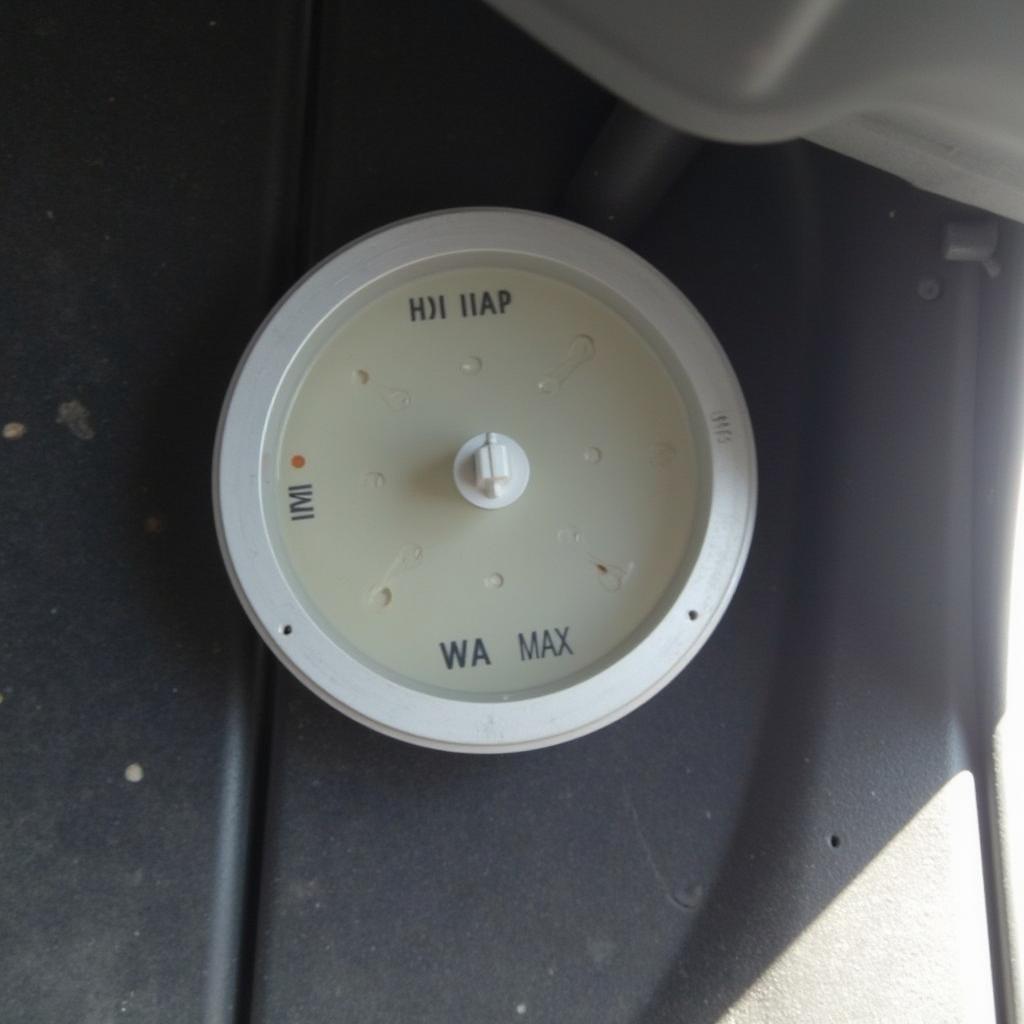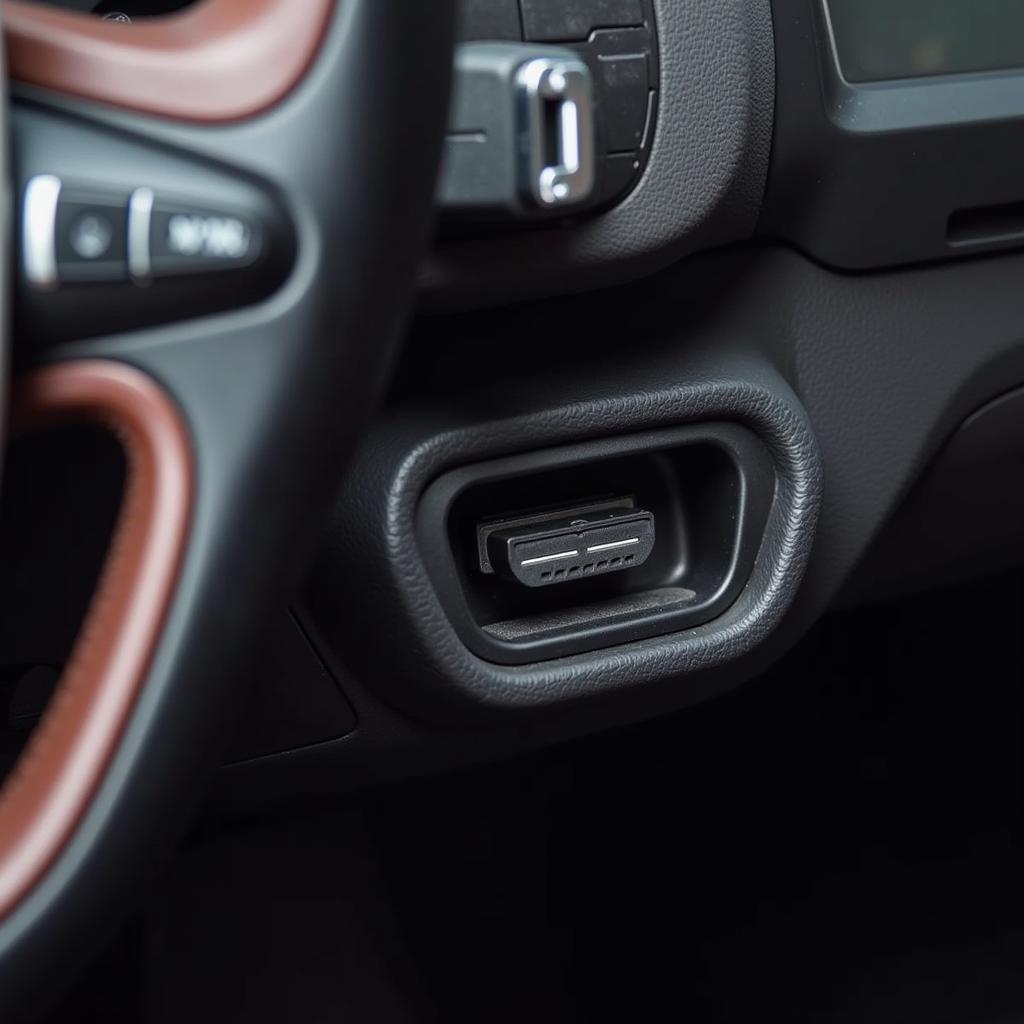The brake warning light on your dashboard is a crucial safety feature, and when it illuminates on your 2007 Toyota Prius, it’s important not to ignore it. While this light could indicate a minor issue, it could also point to a serious problem with your braking system that requires immediate attention. This comprehensive guide will delve into the common causes of a 2007 Prius brake warning light and provide you with the knowledge to diagnose and potentially resolve the issue.
Common Causes of a 2007 Prius Brake Warning Light
Several factors can trigger the brake warning light on your 2007 Prius. Let’s explore some of the most prevalent culprits:
1. Low Brake Fluid Level
One of the most common reasons for the brake warning light to come on is low brake fluid. Brake fluid is essential for your Prius’s hydraulic braking system to function correctly.
How to Check:
- Locate the brake fluid reservoir under the hood.
- Check the fluid level against the “MIN” and “MAX” markings on the reservoir.
- If the fluid level is below the “MIN” mark, add the appropriate DOT 3 brake fluid.
 Low Brake Fluid
Low Brake Fluid
2. Worn Brake Pads
Your Prius’s brake pads are designed to wear down over time. When they become too thin, the brake warning light will activate to alert you that it’s time for a replacement.
How to Check:
- Inspect your brake pads through the spaces between the wheel spokes.
- Look for a significant difference in thickness between the brake pad and the metal backing plate.
- If the brake pads are thin or you notice a grinding noise when braking, it’s best to have them inspected by a professional.
3. Faulty Brake Light Switch
The brake light switch, located behind the brake pedal, is responsible for activating your brake lights when you press the pedal. If it malfunctions, it can also trigger the brake warning light.
How to Check:
- Ask a helper to observe the brake lights while you press the brake pedal.
- If the brake lights don’t illuminate or flicker erratically, the brake light switch may be faulty and needs replacement.
4. ABS System Malfunction
The Anti-lock Braking System (ABS) is a crucial safety feature in your 2007 Prius. If the ABS system encounters a malfunction, it can trigger the brake warning light.
What to Do:
If you suspect an ABS issue, it’s crucial to have your Prius diagnosed by a qualified mechanic specializing in Toyota hybrid systems.
“It’s important to note that attempting to diagnose or repair brake system issues yourself can be dangerous,” warns John Miller, a certified Toyota master technician with over 20 years of experience. “Brakes are critical for your safety, and it’s best to leave complex repairs to the professionals.”
5. Faulty Parking Brake Switch
Similar to the brake light switch, a malfunctioning parking brake switch can also illuminate the brake warning light.
How to Check:
Ensure the parking brake is fully released. If the light remains on, the parking brake switch might be the culprit.
What to Do When Your 2007 Prius Brake Warning Light Comes On
- Don’t Panic: Remain calm and safely pull over to a safe location.
- Check the Parking Brake: Ensure the parking brake is fully disengaged.
- Inspect Brake Fluid: Check the brake fluid level and add fluid if necessary.
- Assess Brake Pedal Feel: Does the pedal feel spongy or go all the way to the floor?
- Listen for Unusual Noises: Pay attention to any grinding or screeching sounds while braking.
“If you experience a soft brake pedal, unusual noises, or if the brake warning light persists after adding brake fluid, it’s essential to have your Prius towed to a qualified mechanic for a thorough inspection,” emphasizes Miller.
Conclusion
Addressing the brake warning light on your 2007 Toyota Prius promptly is vital for your safety and the well-being of your vehicle. While some causes, such as low brake fluid, can be addressed with simple checks and top-ups, other issues may require professional attention. By understanding the potential causes and following the recommended steps, you can ensure that your Prius’s braking system remains in optimal condition and keep you safe on the road.

